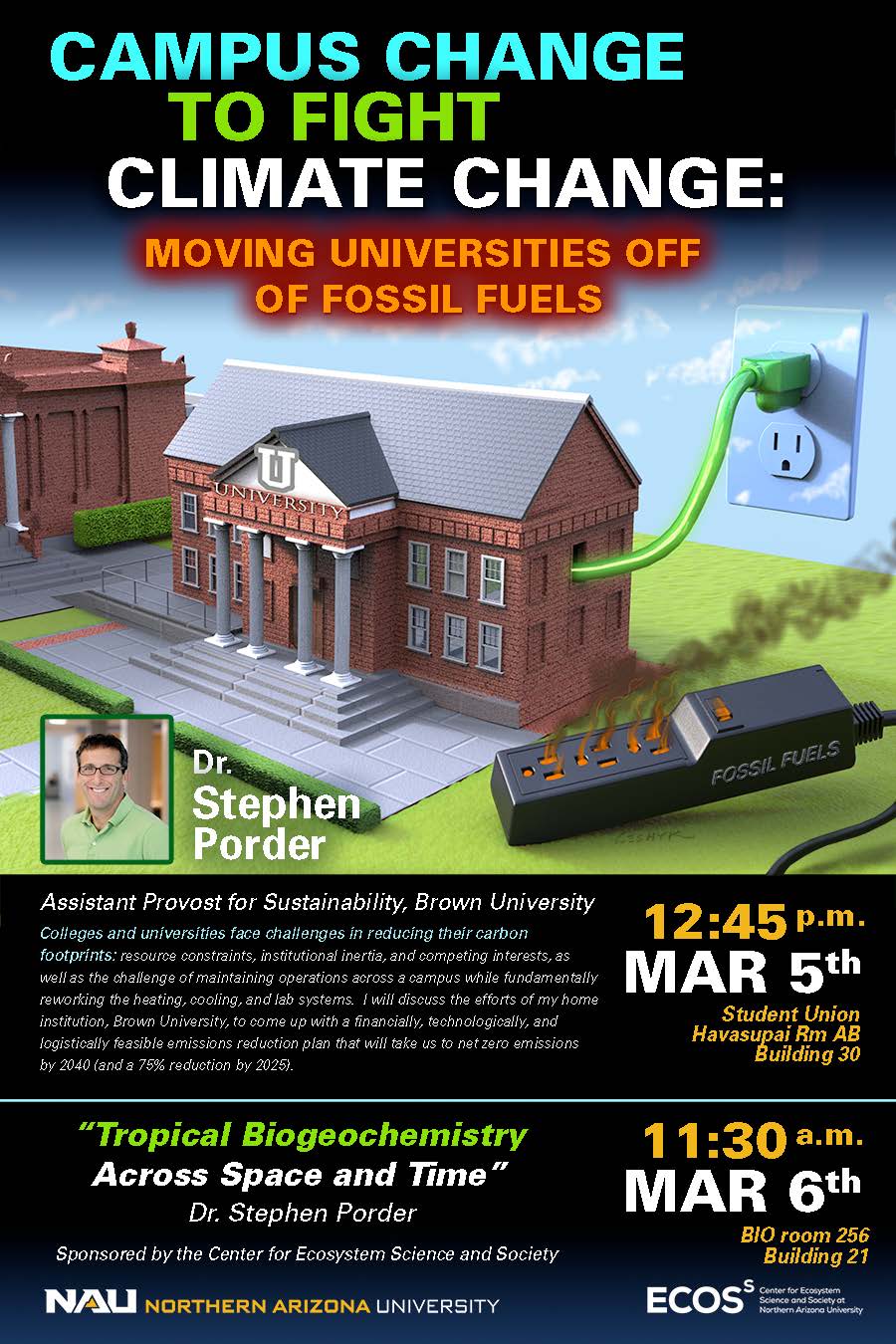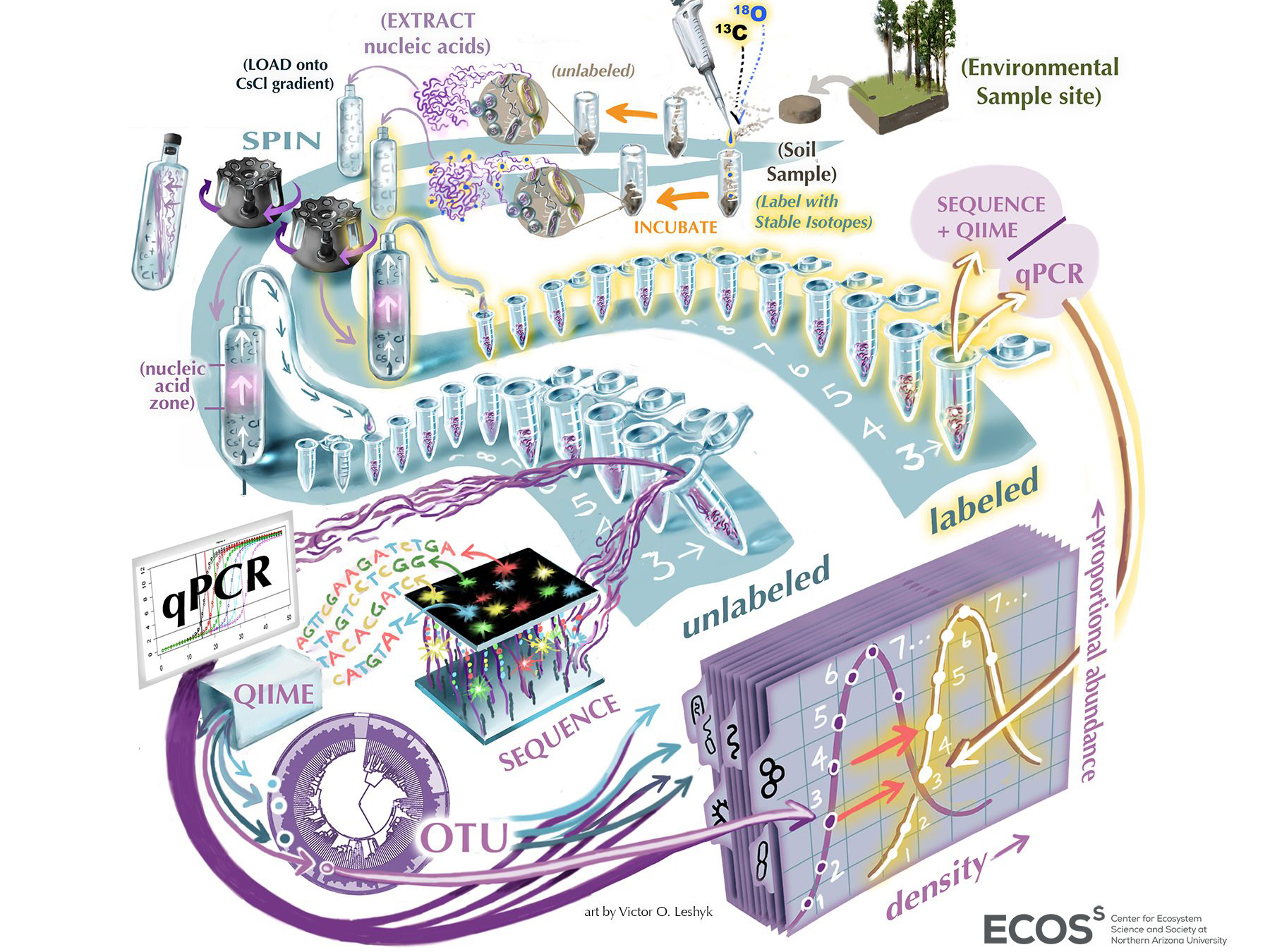Prospective Students
PhD and MS positions in Ecosystem Ecology are available in the Center for Ecosystem Science and Society (Ecoss) at Northern Arizona University. Graduate student benefits include a stipend (teaching assistantship or research assistantship), tuition waiver, health insurance, and payment of non-tuition fees. The Ecoss mission is to conduct high-impact, innovative […]

